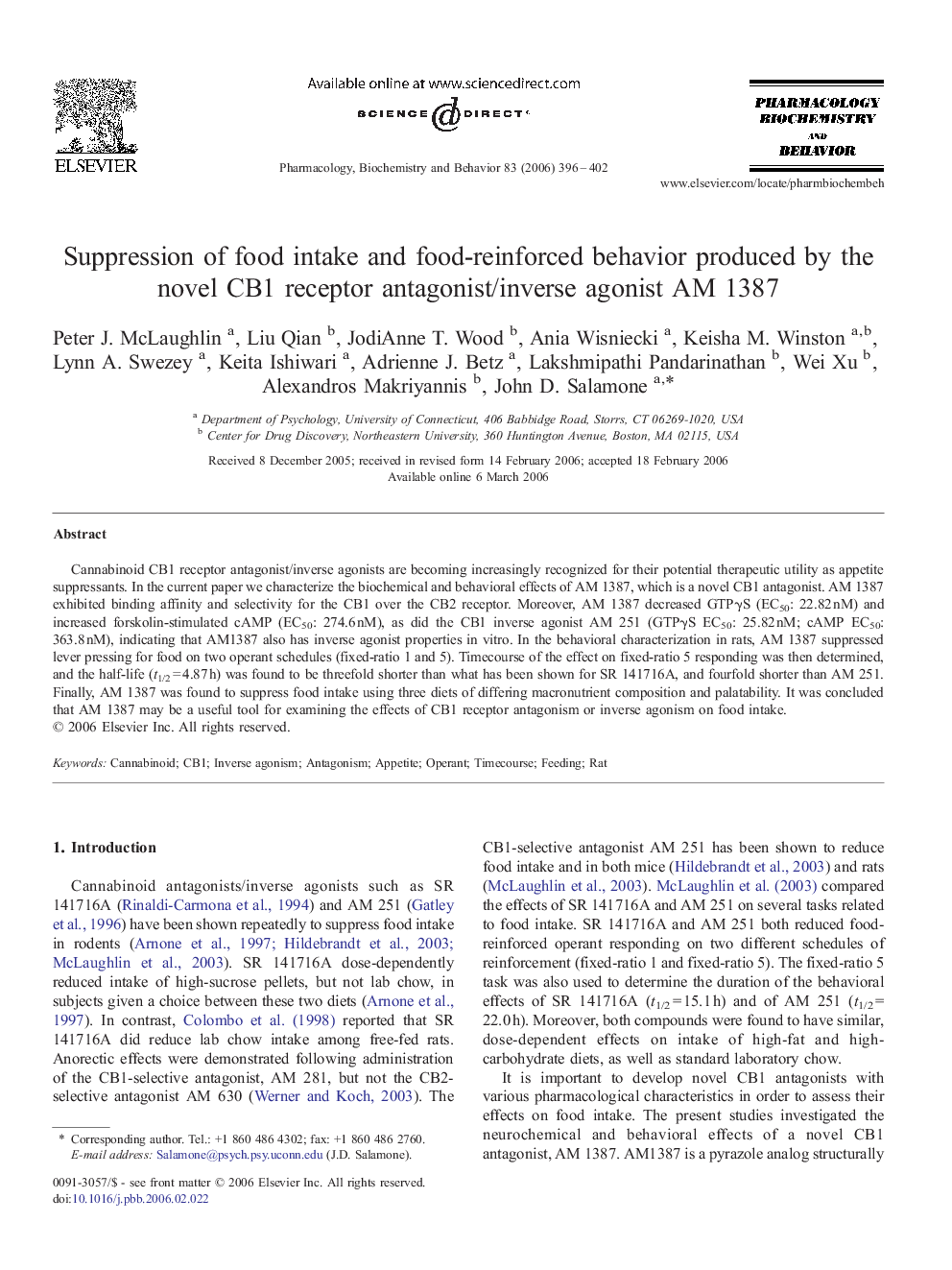| Article ID | Journal | Published Year | Pages | File Type |
|---|---|---|---|---|
| 2014419 | Pharmacology Biochemistry and Behavior | 2006 | 7 Pages |
Cannabinoid CB1 receptor antagonist/inverse agonists are becoming increasingly recognized for their potential therapeutic utility as appetite suppressants. In the current paper we characterize the biochemical and behavioral effects of AM 1387, which is a novel CB1 antagonist. AM 1387 exhibited binding affinity and selectivity for the CB1 over the CB2 receptor. Moreover, AM 1387 decreased GTPγS (EC50: 22.82 nM) and increased forskolin-stimulated cAMP (EC50: 274.6 nM), as did the CB1 inverse agonist AM 251 (GTPγS EC50: 25.82 nM; cAMP EC50: 363.8 nM), indicating that AM1387 also has inverse agonist properties in vitro. In the behavioral characterization in rats, AM 1387 suppressed lever pressing for food on two operant schedules (fixed-ratio 1 and 5). Timecourse of the effect on fixed-ratio 5 responding was then determined, and the half-life (t1/2 = 4.87 h) was found to be threefold shorter than what has been shown for SR 141716A, and fourfold shorter than AM 251. Finally, AM 1387 was found to suppress food intake using three diets of differing macronutrient composition and palatability. It was concluded that AM 1387 may be a useful tool for examining the effects of CB1 receptor antagonism or inverse agonism on food intake.
